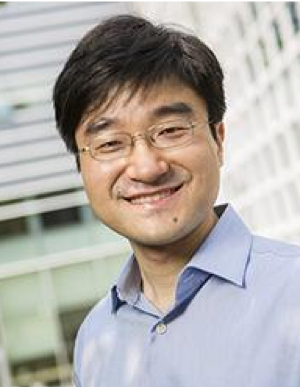
Date:
Location:
Title:
abstract
Layered sodium transition metal oxide system of NaMO2 (M = 3d transition metal ions and their mixtures with other metal elements) forms a unique material platform to study the interactions between transition metal, oxygen and sodium sublattices. Specifically, Fe, Mn and Mg, which are not stable in layered LiMO2, become much more stable in NaMO2. In this talk, I will show that the interplay between these different sublattices at low Na composition modulates the electrochemical performance of NaxMO2 through the generation of novel high voltage phases. A combined in situ (synchrotron) XRD, X-ray absorption spectroscopy, atomic resolution (scanning) TEM, neutron diffraction and density functional theory (DFT) simulation techniques are used to understand the structural and functional details in crystallographic, electronic and magnetic properties. For the Fe containing mixed transition metal system of Na(FexTM1-x)O2, a rippling phase at high voltage was developed due to the unique electronic property of FeO6 octahedra, while at low voltage it goes back to the normal flat phase through an asymmetric structural evolution pathway, giving high discharge rate capability. For NaMnO2 a unique phenomenon of super charge separation is reported, where an emergent structural unit of charge superplane related to the collective Jahn-Teller activity of Mn3+ was found to dominate the entire electrochemical evolution, giving asymmetric charge discharge behavior and high discharge capacity. I will also discuss the influence of Mg doping in the end. The underlying connection between these reversible asymmetric systems will be discussed to further facilitate the design of advanced cathode materials for sodium ion batteries.
bio
Dr. Xin Li started as the assistant professor at school of engineering and applied sciences at Harvard University in 2015. Xin Li’s research group focuses on the design of new battery materials through advanced characterizations and simulations, with the current focus on lithium solid electrolytes and sodium cathode materials. Before joining Harvard, Dr. Xin Li was a postdoc at MIT from 2011 to 2015 working on battery materials, and a postdoc at CalTech from 2010 to 2011 working on ultrafast microscopy. Xin Li obtained the doctoral degree in materials science and engineering from Pennsylvania State University and bachelor’s degree in Physics from Nanjing University in China.
Hosted by Anton Van der Ven. Download event flyer.



